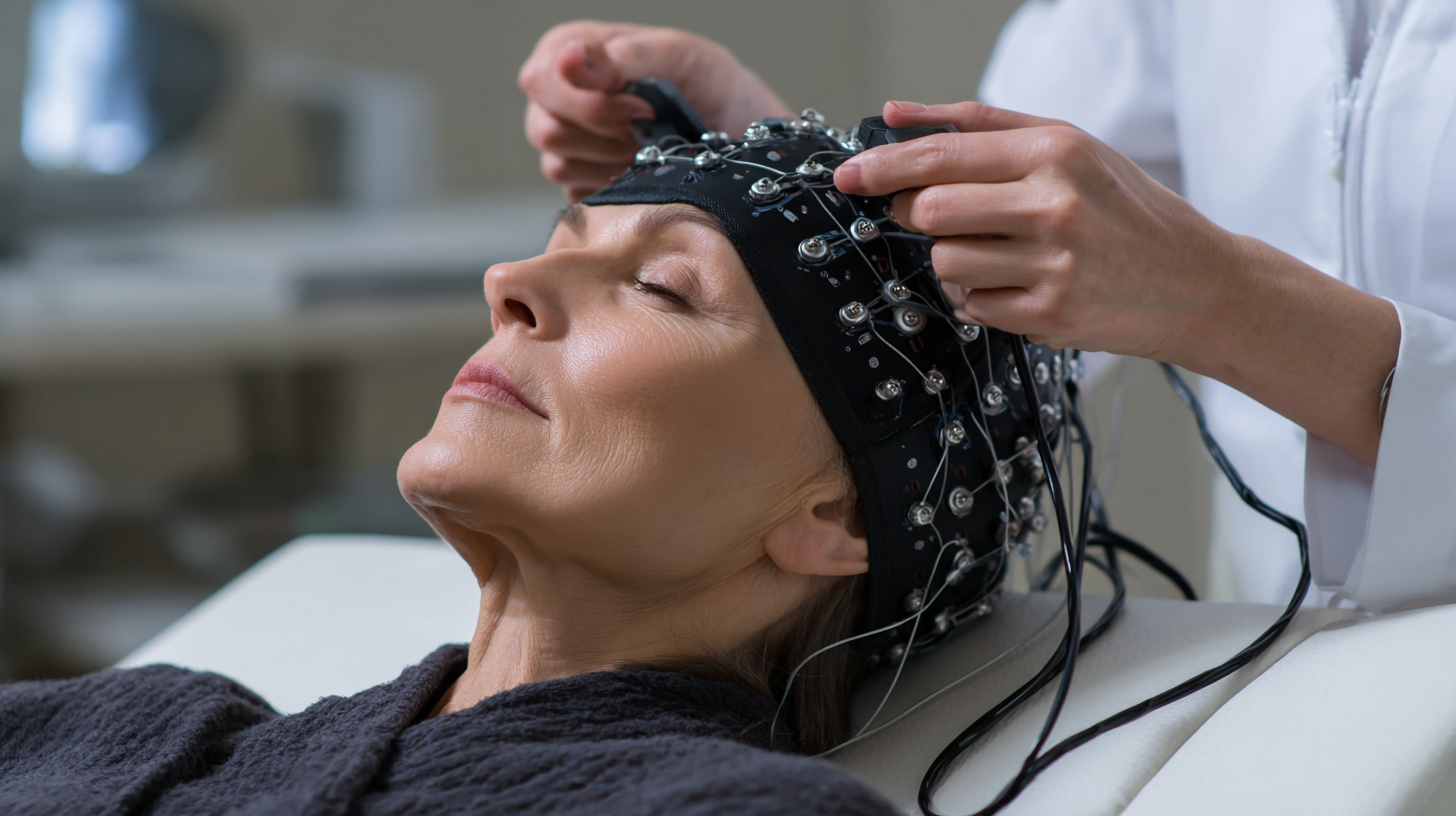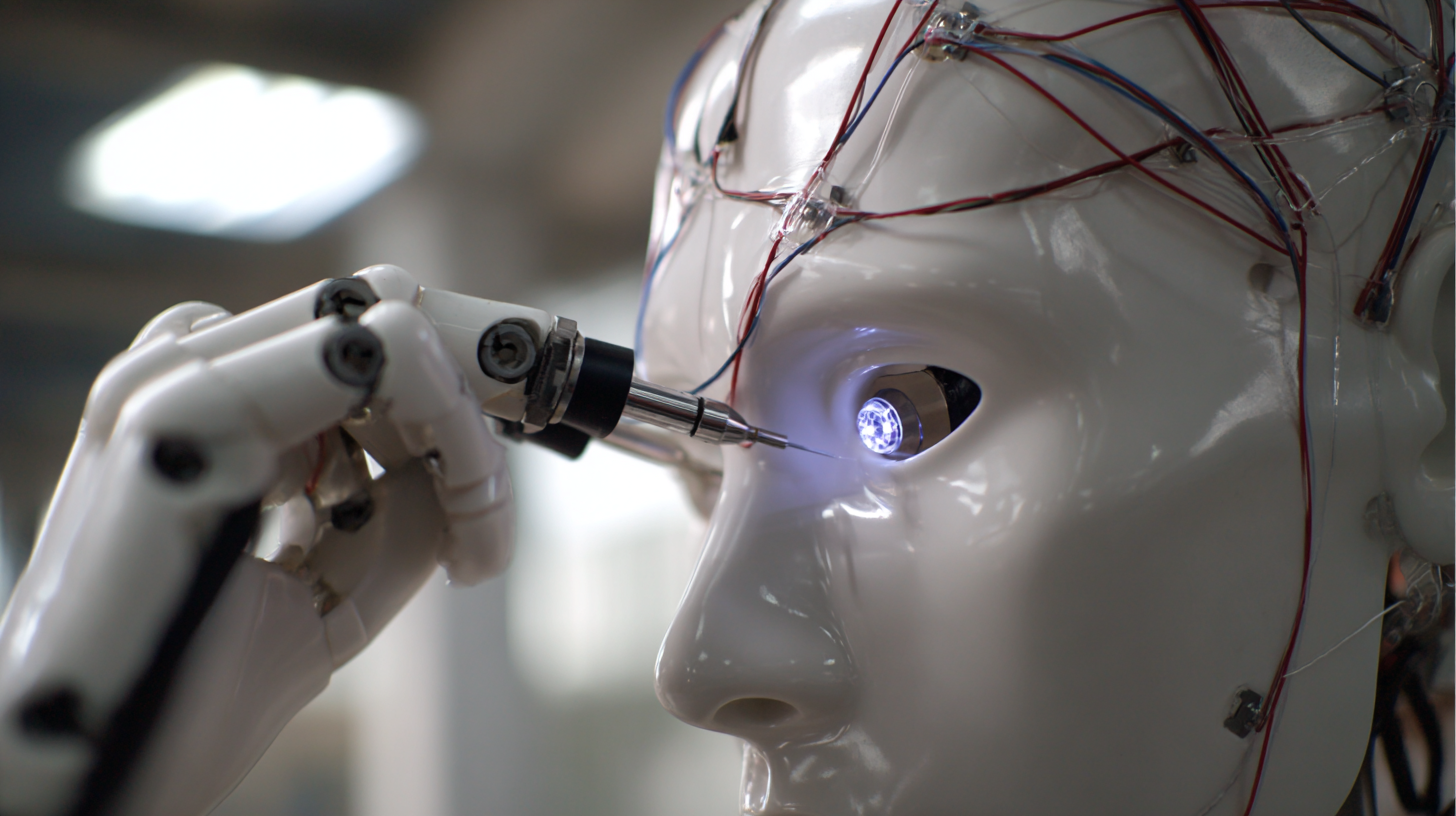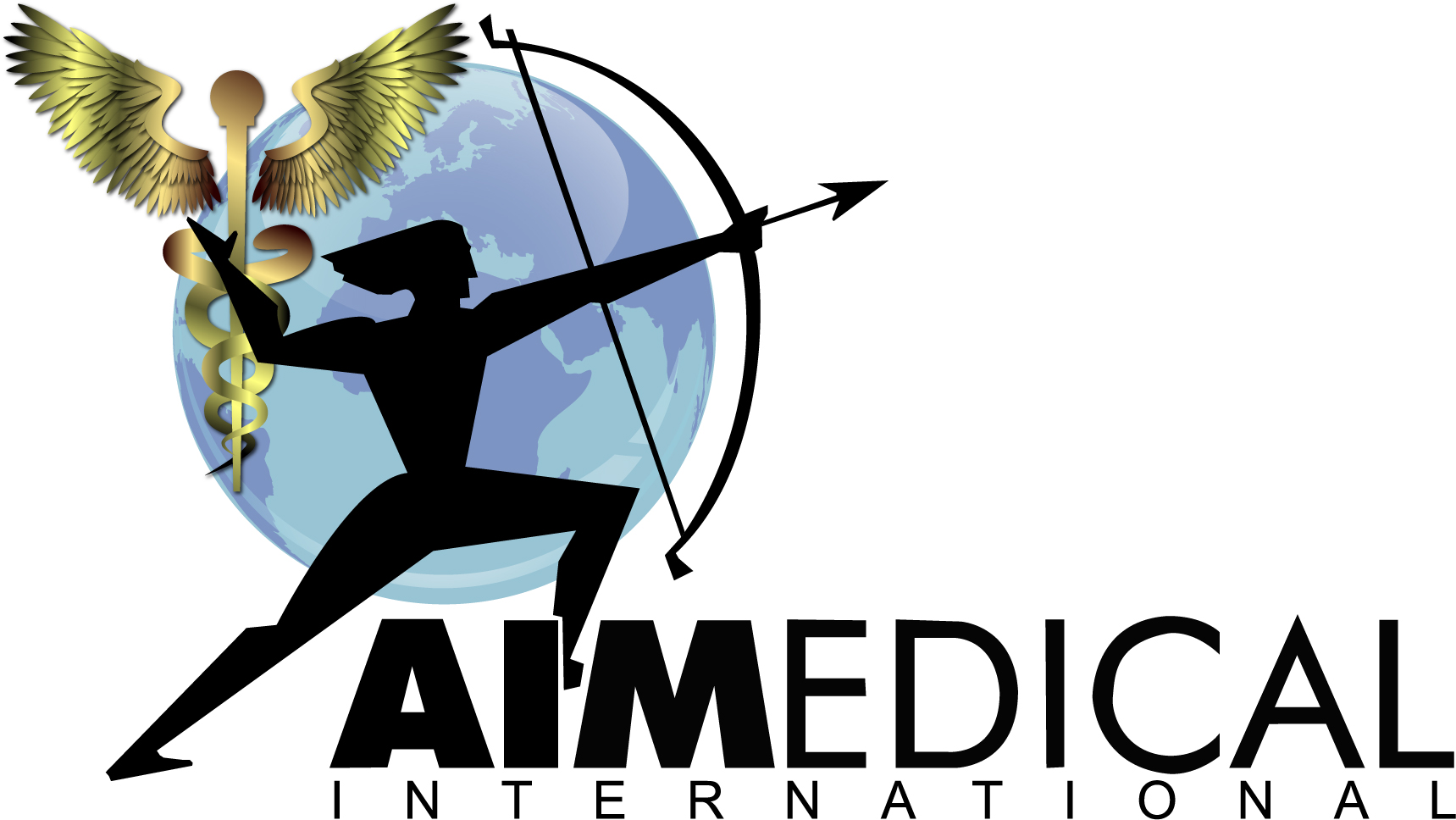Unleashing Global Trust with Best Neurostim Tms from China's Leading Factory
In the rapidly evolving field of mental health treatment, Neurostim TMS (Transcranial Magnetic Stimulation) has emerged as a leading technology, promising significant advancements in therapeutic outcomes. According to a recent report by MarketsandMarkets, the global TMS therapy market is projected to reach $1.1 billion by 2026, growing at a compound annual growth rate (CAGR) of 15.3%. This surge in demand underscores the critical importance of sourcing high-quality Neurostim TMS devices from reputable manufacturers. As China establishes itself as a powerhouse in medical device production, identifying reliable suppliers has become essential for healthcare providers seeking to enhance patient care through innovative treatments. This blog will explore effective strategies for finding top-notch Neurostim TMS providers, ensuring that clinicians can confidently invest in cutting-edge technology that meets rigorous industry standards.

The Rise of Neurostimulation Technologies in the Global Market
Neurostimulation technologies have rapidly gained traction in the global healthcare market, marking a significant shift in the way neurological disorders are treated. As advancements continue to emerge, the demand for innovative solutions like Transcranial Magnetic Stimulation (TMS) is on the rise. These technologies offer a non-invasive alternative for conditions such as depression, anxiety, and chronic pain, and their efficacy has been increasingly recognized by both healthcare professionals and patients alike.
China's leading factories are at the forefront of this revolution, producing state-of-the-art neurostim TMS devices that adhere to international quality standards. With a focus on research and development, these manufacturers are not only enhancing product performance but also making neurostimulation more accessible to a global audience. This expansion is pivotal in addressing the increasing healthcare needs as mental health awareness rises worldwide. By unleashing global trust in these technologies, China is establishing itself as a key player in the neurostimulation landscape, fostering innovation that can ultimately improve patient outcomes across the globe.
Market Growth of Neurostimulation Technologies (2018-2023)
Key Innovations from China's Leading Neurostim TMS Factory
China's leading neurostim TMS factory has been at the forefront of developing groundbreaking technologies that significantly enhance mental health treatment. According to a 2023 report by Grand View Research, the transcranial magnetic stimulation (TMS) market is projected to reach over $2.4 billion globally by 2028, driven by an increasing prevalence of depression and anxiety disorders. This burgeoning demand necessitates innovative solutions, positioning Chinese manufacturers as pivotal players in the global healthcare landscape.

Key innovations from this leading factory focus on enhancing the effectiveness and efficiency of neurostim TMS devices. For instance, advancements in coil design have improved the precision of targeted stimulation, resulting in higher patient response rates. A study published in the journal "Brain Stimulation" reveals that these innovative devices can escalate treatment efficacy by up to 30% compared to traditional systems. Furthermore, the integration of artificial intelligence in treatment protocols allows for personalized therapy, adapting stimulation parameters in real time based on patient feedback. As such, China's contributions are not just about volume but also about leading the charge in quality and sophistication within the TMS domain.
Impact of Regulatory Changes on the Neurostim Industry by 2025
As the neurostimulation industry evolves, regulatory changes are poised to significantly impact operations and innovation by 2025. Governments worldwide are increasingly focused on ensuring the safety and efficacy of neurostimulation devices, which includes Transcranial Magnetic Stimulation (TMS) systems. In China, where the leading factory for Neurostim products is located, compliance with evolving regulations can enhance product quality while fostering consumer trust in neurostimulation technologies.

The anticipated shift in regulatory frameworks may also encourage collaboration between manufacturers and regulatory bodies, promoting best practices in research and development. Companies that adapt proactively to these changes are likely to lead the market, introducing cutting-edge TMS devices that leverage the latest scientific findings. By prioritizing robust clinical trials and adhering to stringent safety standards, the neurostim industry can position itself for sustainable growth and increased acceptance in healthcare settings. This could ultimately pave the way for broader applications of neurostimulation therapies, addressing various mental health conditions and enhancing overall patient care.
Consumer Trust and Market Adoption of Neurostim Devices
In the rapidly evolving landscape of neurostimulation devices, consumer trust plays a crucial role in market adoption. As China’s leading factory produces some of the finest Neurostim TMS devices, building confidence among users becomes imperative. Ensuring transparent communication about product efficacy, safety, and manufacturing standards is essential in fostering trust. As potential users consider integrating these devices into their routines, companies must stand out by showcasing testimonials and evidence-based outcomes that resonate with consumers.
**Tip:** Enhance consumer trust by providing comprehensive product information on your website, including user guides and clinical studies that highlight success stories.
Additionally, offering exceptional customer support can further alleviate concerns. Many users may have questions about device usage or potential side effects. Establishing a dedicated help center with knowledgeable representatives allows for real-time assistance. Engaging with users through social media can also provide a platform for feedback and community building, creating advocates for the technology.
**Tip:** Create a user-friendly FAQ section addressing common concerns and training videos demonstrating device use to empower consumers.
Future Trends: How Neurostim TMS Will Shape Mental Health Treatments
The landscape of mental health treatment is rapidly evolving, and Neurostim TMS (Transcranial Magnetic Stimulation) is at the forefront of this transformation. Recent industry reports indicate that the global TMS market is expected to grow from $800 million in 2022 to nearly $2 billion by 2030, reflecting a surge in demand driven by increased awareness and the rising prevalence of mood disorders. This innovative therapy not only offers non-invasive treatment options for conditions like depression but also holds promise for anxiety, PTSD, and other mental health issues.
As Neurostim TMS technology advances, it is critical for healthcare practitioners to stay informed about emerging trends. Integration of artificial intelligence and personalized treatment protocols are on the horizon, enhancing the efficacy and patient experience. According to a study published in the Journal of Neuropsychiatry, patients receiving tailored TMS treatments have shown a 30% higher success rate than those on standardized regimens.
Tips: For practitioners considering TMS, it’s essential to maintain comprehensive training to understand the intricacies of the technology. Engaging in continuous education can markedly improve treatment outcomes. Additionally, fostering collaboration with neurotechnology providers can lead to better insights into ensuring patient safety and maximizing therapy efficacy.
